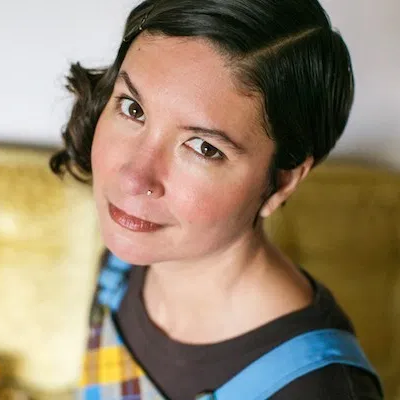
Today’s post is by regular contributor Susan DeFreitas (@manzanitafire), an award-winning author, editor, and book coach. She offers a first 50-page review on works in progress for novelists seeking direction on their next step toward publishing.
In my work as a book coach, I’ve found that writers of fiction generally fall into three camps: those who start with character, those who start with plot or story concept, and those who start with theme.
In part one of this series I addressed those writers who tend to start with character—those who often start with a certain voice in their head, or an idea for a certain type of protagonist. In part two, I addressed those writers who tend to start with plot—writers for whom a new project may arrive in the form of a story concept, or a certain angle on a genre they’d like to explore.
Over the course of the last twelve years, I’ve worked with hundreds of writers, and the vast majority of them fit into one of those two camps. But there is a third kind of writer as well, the writer who starts with theme.
These writers tend to be driven by a desire to explore themes that have been meaningful in their lives—dreams, for instance, or the concept of generational trauma. Or they may want to explore elements of their own personal history, or their attraction to a certain landscape or setting.
Whatever the initial seed of the novel is, writers who start this way tend to proceed by feel, discovering both the characters and the situation of the story as they write. This process of discovery tends to draw on the writer’s intuition to such an extent that the writer herself often has to extrapolate from what she’s uncovered in order to figure out how everything connects.
If that sounds like a bit of a mysterious process, it is. But it can also make for very compelling fiction, for the following reasons.
Strength: Meaning is “baked in”
Writers who start with character or plot often have to look for themes that arise in their work in order to give the story a sense of being about something bigger than just the characters or the events of the plot. Those who start with theme don’t have that problem: their stories are built around themes that are meaningful to them, and therefore have a good shot at being meaningful to the reader as well.
This is true even when their stories simply explore time periods or landscapes, because there is always something specific in those time periods or landscapes that the author finds deeply meaningful—hence their attraction to exploring them. This sense of meaning tends to come through in the story, in a way the reader can really feel, and that’s a powerful thing.
Strength: There is no other story like this story
Stories built around theme tend to be deeply personal, and as such, unique in the marketplace for fiction.
Which is to say, there may be many novels set in the 1930s, but there is no other novel like Jess Walter’s The Cold Millions, because that novel is built around Walter’s family history and fascination with the working-class politics of the era.
There may be many novels about marriages on the rocks, but there is no other novel like Haruku Murakami’s The Wind-Up Bird Chronicle, which is built around dreams, and the question of whether we ever truly know ourselves or each other.
And there may be many portal fantasies, but there are no other novels like those of Jeff Vandermeer’s Southern Reach trilogy, because those novels were inspired by Vandermeer’s fascination with the uncanny flora and fauna of Fiji, where he spent much of his childhood.
Strength: Aesthetic appeal
Along with that sense of uniqueness, novels built around theme tend to have a strong, particular aesthetic that run through them. It’s not just about who the characters are or what’s happening in the story, it’s about how the whole thing feels.
Those aesthetics might be associated with a strong sense of place, or a particular moment in time; or they may reflect certain irreducible aesthetic attractions on the part of the author (as in Murakami’s dreams and Vandermeer’s uncanny nature in the examples above). If every story is about the ride as much as the destination, that’s even more true in stories like this.
That said, writers who start with theme definitely face a few challenges.
Challenge: A million revisions
Because writers who start with theme often have to discover both the novel’s characters and plot as they write, they often wind up having to work through draft after draft to create a publishable manuscript.
The metaphor I use for this is that it’s like building a castle in the clouds; that castle is a beautiful, unique, compelling thing, but it’s out of reach for most readers. Writers who start this way often have to do a lot of work to build a sturdy foundation under that castle in order for readers to have any hope of reaching the front door.
Challenge: Workshopping and critique
How do you workshop a castle in the sky? How do you critique it? How do you provide meaningful feedback at all? These sorts of manuscripts, while in progress, tend to present a fascinating but impenetrable exterior, offering workshop peers and critique partners very little to work with, in terms of how to offer meaningful feedback on it.
This can make the writer feel like their work will never be understood by others, and despair of getting the sort of feedback that will help them build a sturdy foundation under that glittering edifice—especially when they’re just starting out.
Challenge: Publishing
For the same reasons that novels like this are hard to workshop, novels like this can be hard to pitch, because they don’t fit into any neat and tidy categories. Describing the novel’s plot often doesn’t offer a good sense of what it’s really about, nor does simply describing the characters and their dramas. As a result, novels like this can be a tough sell, especially for a debut author.
The good news is that all the same things that can initially work against the author with a novel like this can work for them later on, because when such books are published, they tend to elicit a strong reaction from their readers. People become deeply passionate about books like this, and tend to advocate for them in a way they would not for many of the other novels they read in the course of a year.
Like the challenges faced by other types of writers, none of these is insurmountable—but as with so much of life, it helps to know who you are and what you’re working with in terms of your own process rather than expecting “one size to fit all.”
Do you consider yourself a writer who starts with character, one who starts with plot or story concept, or one who starts with theme? I’d love to hear from you in the comments on this, along with one significant breakthrough you’ve had with your own process.

Susan DeFreitas is the author of the novel Hot Season, which won a Gold IPPY Award, and the editor of Dispatches from Anarres: Tales in Tribute to Ursula K. Le Guin, a finalist for the Foreword INDIES. An independent editor and book coach, she specializes in helping writers from historically marginalized backgrounds, and those writing socially engaged fiction, break through into publishing.

Ms. DeFreitas,
It was wonderful to read your description of writing from a theme as “castle in the sky”. As a beginning writer, I am discovering a lot of things, and your blog gave me a new understanding of what I have been doing with a piece I have been working on.
Thank you,
J Alan
Glad to hear it was helpful, J! Wishing you all the best in your writing journey.
Terrific article! Very insightful. In retrospect, I realize I’m all over the map. Usually I start w/a plot, sometimes with the theme, and at other times, a character. Good to know the strengths and weaknesses that accompany starting from a theme.
Being able to start with any of these three strikes me as a great strength–but yes, definitely, I can see how it would be helpful to get clear on some of the strengths and weakness with each.
Thank you for this article. I feel so seen!
I’ve always been a bit uncomfortable with the question Do you start with character or plot? I typically start with a feeling or an image or a concept. Love that I now have a response—I start with theme!
Yes! This makes me happy to hear! =)
Thank you for putting a name to my pain! It’s small comfort to know there is at least one reason my “hooks” don’t hook reviewers or readers: it’s almost impossible to define what the book is about in a beguiling way without saying “just read the damn thing”! But your pointing out that this is a universal problem encourages me to look for a different solution. Which, I guess, I should have figured out long ago. So I’m glad I read your post.
I work best if I get a theme outlined right at the start. The rest seems to fall into place after that, though slowly, as you say. One tip that I found helpful is not really a marketing idea but a book about writing from theme. The reason I mention it here is that it encouraged me to get more clarity in my message. This helped my writing but also made it easier to translate that message to writing blurbs. The book is called The Anatomy of Story, by John Truby. It probably wouldn’t suit everyone, but people who start with a theme might benefit from his suggestions on organizing ideas.
My only breakthroughs have come from collaborating with people involved in some area of my research, speakers for example, bloggers, a town historian. My plan is to try to do more of this.
So again, thank you for a very insightful evaluation~~
Glad this post was helpful to you! And thank you so much for weighing in with this recommendation–I look forward to checking out this book.
Thank you for this. As others have mentioned, it makes me feel seen as a writer. I felt as if you were writing about me and my novel (the one you are currently looking at).
So true, Audrey! I was just thinking of this myself, as I was working on your Manuscript Evaluation this morning…
This was very helpful as I find myself in the third (theme) category. Thank you.
Hello Susan, thank you for a delightfully informative article. As a novice writer and six-year blogger, I have more experience writing short stories than novels. As a Ghostwriter, I published a short storybook and wrote three non-fiction self-help books. I am working on a fictional ‘paranormal romance theme’ novel. I completed 58k words before ‘putting on the brakes’ while I hunted for more training. Writing these pages, I pantsered along happily and enjoyed every writing moment. I love flying airplanes and being in love. In more recent years, I’ve started to potter around time travel. The novel writing has left me feeling like I need more guidance. From what you write, I’d say that I’m character-driven, but I could live with theme concepts, too. Otherwise, I see myself as a wee bit of a plotter, pantser, and plantser. Your site is a hit, and I will follow your next two articles on this site. (got both URLs from Emily Colin.)
Glad to hear you found this post useful, Peter-James! And I like that term, plantser. =)